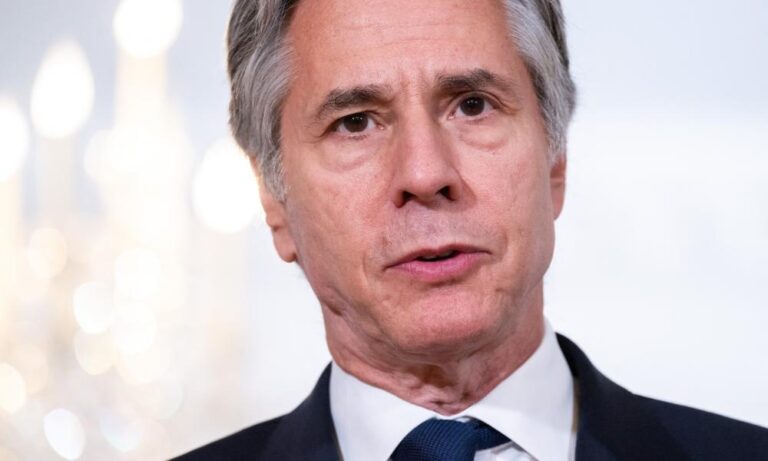US Secretary of State Antony Blinken announced new sanctions on Iran’s oil sector in response to what he described as an expansion of the country’s nuclear program that has sparked new fears that it is preparing to build an atomic bomb.
The embargoes – on three unnamed entities involved in the transport of Iranian oil or petrochemicals – were announced amid a chorus of warnings about a renewed conflict in the Middle East between Israel and Iran’s proxy. Hezbollahthe powerful Shiite group that dominates Lebanon.
In a statement released Thursday, Blinken said Iran had expanded its uranium enrichment program over the past month “in a manner that has no credible peaceful objective.”
Under the new sanctions, 11 ships associated with the three embargoed organizations would be designated as “blocked assets.”
“Iran’s actions to increase its enrichment capacity are all the more concerning in light of Iran’s continued failure to cooperate with the IAEA (International Atomic Energy Agency) and statements by Iranian officials suggesting potential changes in Iran’s nuclear doctrine,” Blinken said.
He was referring to recent comments by Kamal Kharazzi, an adviser to Iran’s supreme leader, Ayatollah Ali Khamenei, that the country could revise its defense doctrine to authorize the manufacture of nuclear weapons following a series of military exchanges with Israel in April.
“We have not yet decided to build a nuclear bomb, but if Iran’s existence is threatened, we will have no choice but to change our military doctrine,” Kharrazi said. “In the event of an attack on our nuclear facilities by the Zionist regime, our deterrence will change.”
The new sanctions were imposed a day before Iran go to the polls Friday in a special presidential election called to elect a successor to Ebrahim Raisi, the former president killed last month in a helicopter crash along with Hossein-Amir Abdollahian, the country’s foreign minister, and several other officials.
Iran has previously maintained that its nuclear program is strictly for civilian purposes, with Khamenei explicitly ruling out the development of a nuclear bomb, which he considers forbidden by Islam.
The hints of a policy change followed a series of episodes that began with the assassination of members of Iran’s Islamic Revolutionary Guard Corps during an Israeli airstrike on a diplomatic compound in the Syrian capital Damascus.
Iran responded by firing 300 missiles at Israelall of which were shot down by US and allied missile defense systems. In what was seen as a calibrated response, Israel then fired on a radar air defense system near the central Iranian city of Isfahan, causing minimal damage, according to Iran.
Blinken’s announcement Thursday followed talks in Washington with Israeli Defense Minister Yoav Gallant, who also met with Defense Secretary Lloyd Austin and William Burns, the CIA director, as part of discussions that would have addressed Iran’s recent nuclear activities.
“We remain committed to never allowing Iran to acquire a nuclear weapon, and we stand ready to use every element of national power to ensure that outcome,” Blinken said.
IAEA officials have estimated that Iran now has enough uranium enriched to 60 percent purity – which could be converted to explosive-grade material within days or weeks – to build at least three nuclear weapons.
An agreement, officially known as the Joint Comprehensive Plan of Action, reached with Iran’s theocratic regime during Barack Obama’s presidency was intended to contain the country’s nuclear activities, but it was abandoned by Donald Trump in 2018and replaced by new sanctions designed to restrict the program through “maximum pressure.”
Attempts to revive the Obama-era deal under Joe Biden’s administration have failed.


